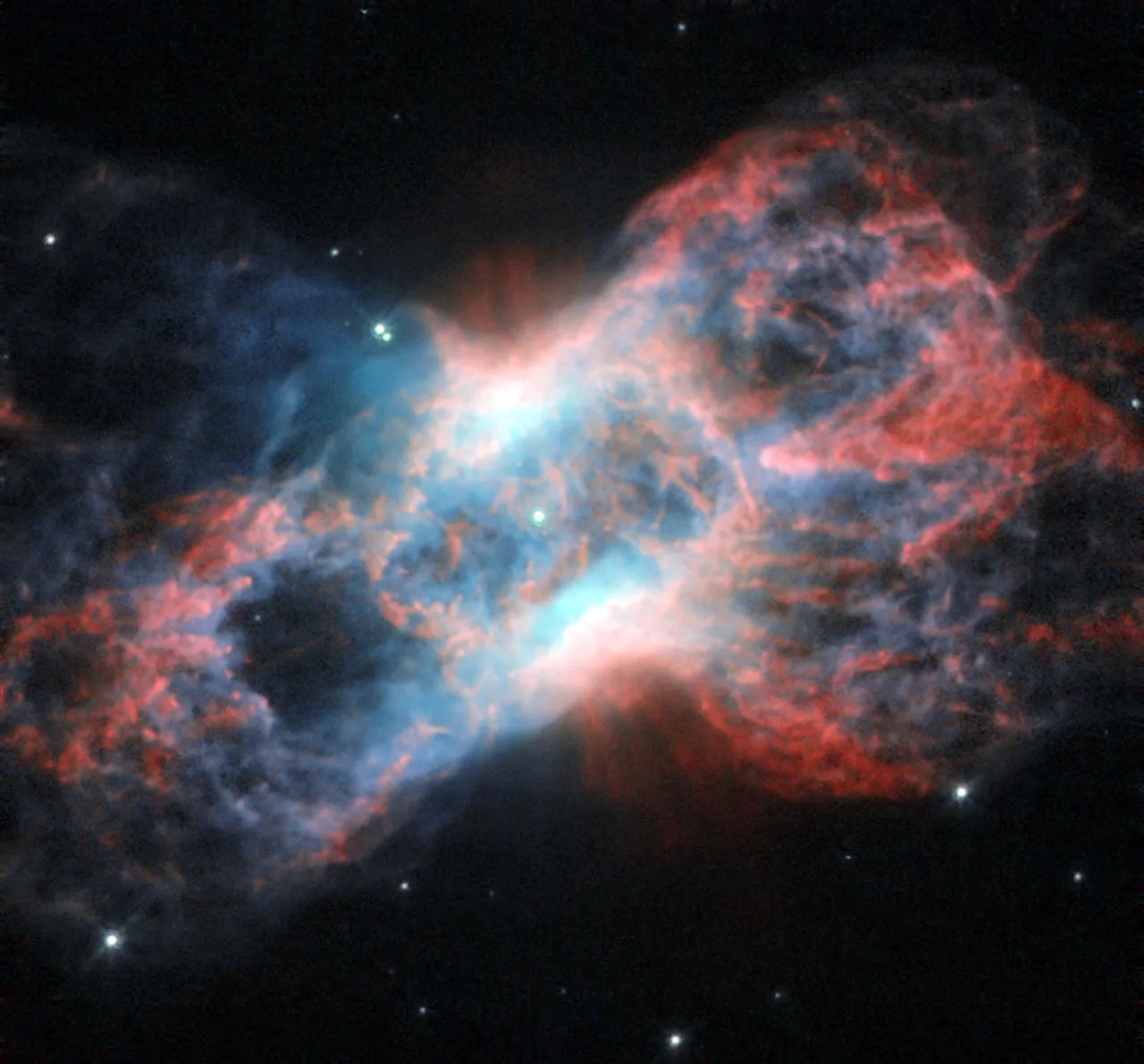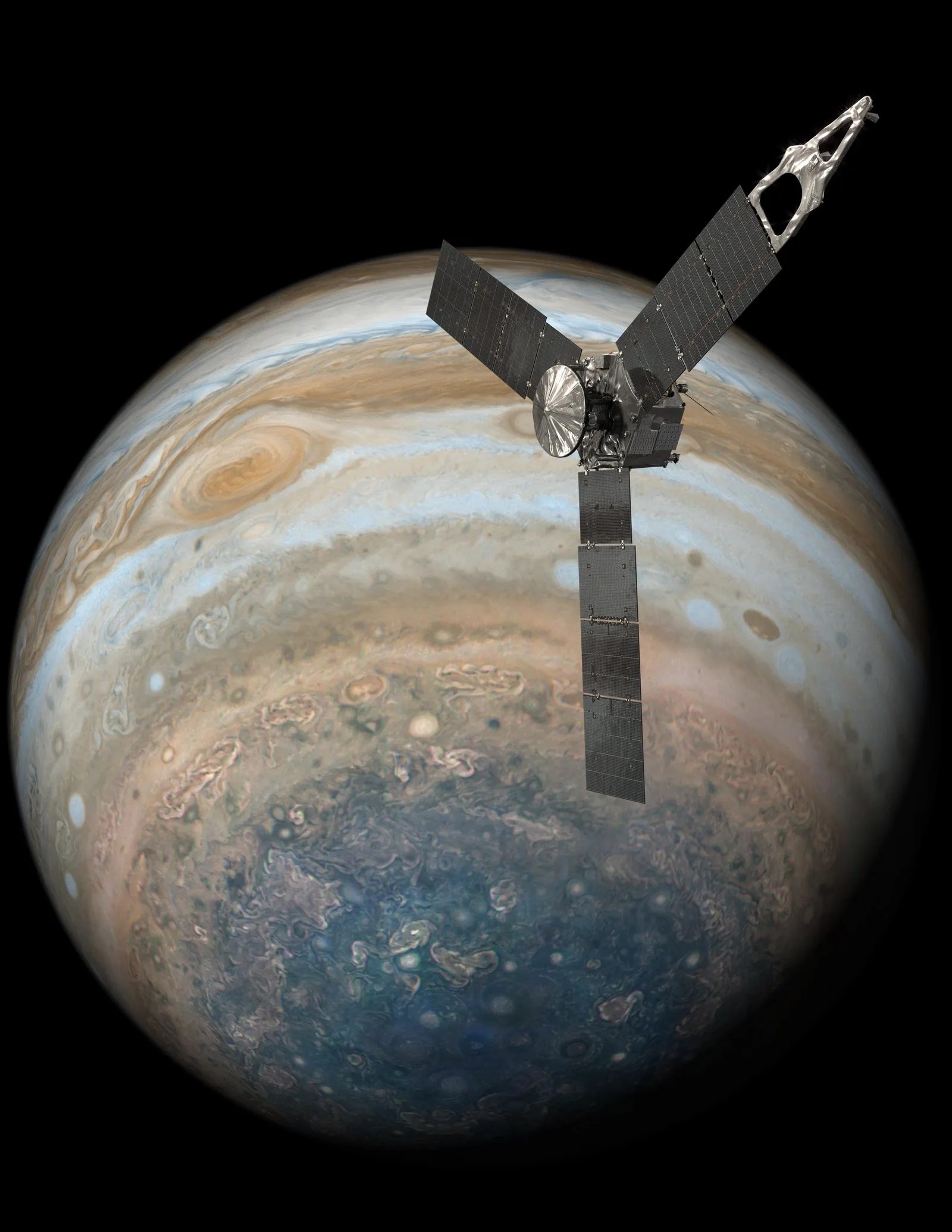2 min read

This image from the Hubble Space Telescope shows planetary nebula NGC 7026. Located just beyond the tip of the tail of the constellation of Cygnus (The Swan), this butterfly-shaped cloud of glowing gas and dust is the wreckage of a star similar to the sun.
Planetary nebulae, despite their name, have nothing to do with planets. They are, in fact, a relatively short-lived phenomenon that occurs at the end of the life of mid-sized stars. As a star's nuclear fuel runs out, its outer layers are puffed out, leaving only the hot core of the star behind. As the gaseous envelope heats up, the atoms in it are excited, and it lights up like a fluorescent sign.
Fluorescent lights on Earth get their bright colors from the gases with which they are filled. Neon signs, famously, produce a bright red color, while ultraviolet lights (black lights) typically contain mercury. The same is true for nebulae: their vivid colors are produced by the mix of gases present in them.
This image was produced by the Wide Field and Planetary Camera 2 aboard the Hubble Space Telescope. A version of it was entered into the Hubble's Hidden Treasures Competition by contestant Linda Morgan-O'Connor. Hidden Treasures is an initiative to invite astronomy enthusiasts to search the Hubble archive for stunning images that have never been seen by the general public.
Image Credit: ESA/NASA







